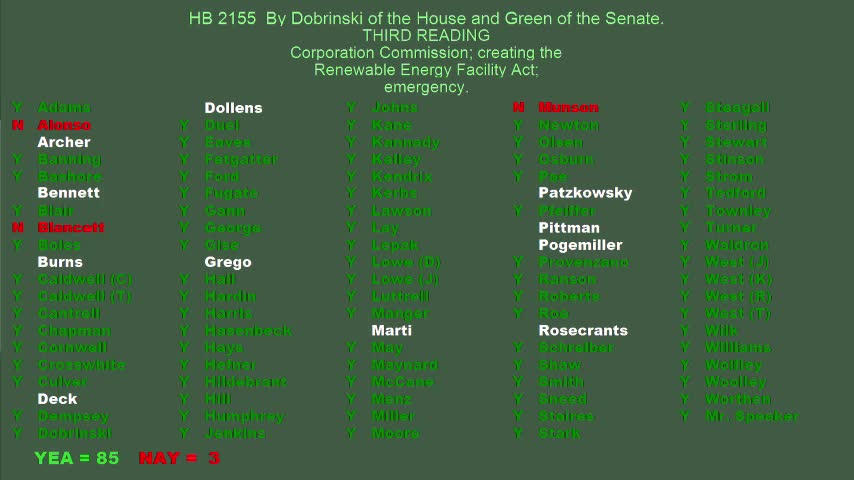House approves shift to single‑factor sales apportionment for corporate income tax
Get AI-powered insights, summaries, and transcripts
Subscribe
Summary
The Oklahoma House on March 5 passed House Bill 1200, which moves the state from a triple‑factor corporate apportionment to a single‑factor method based on sales, with an optional threshold for very large companies. Sponsors said the change aims to encourage capital investment; critics pressed for clearer fiscal estimates.
The Oklahoma House on Wednesday passed House Bill 1200, moving the state's corporate income tax from a triple‑factor apportionment to a single‑factor apportionment based on sales. Representative Maynard, the bill's author, moved final passage; the measure passed by roll call, 89 yeas to 6 nays.
Supporters said the change will make Oklahoma more competitive for manufacturing and capital‑intensive facilities and simplify how corporations are taxed. "When businesses make money, they actually are the ones who invest and create value in our state," Representative Maynard said on the House floor. "All we're saying is we're gonna let businesses keep the money they make."
The bill also includes an optional provision for companies with more than $100 million in receipts: those companies may elect to retain the current triple‑factor method instead of switching automatically. During floor debate lawmakers focused on the bill's fiscal effects. Representative Blansett and others pressed for detail on the estimated revenue impact; Representative Maynard and supporters said the greatest known fiscal effect in the fiscal analysis stems from changes to the throwback rule and not from the single‑factor change itself.
The fiscal analysis cited during debate estimated about a $51,000,000 impact for fiscal 2026 and 2027 attributable to the throwback rule portion of the measure; the sponsor and questioners repeatedly noted that the full net fiscal effect of switching some taxpayers to single‑factor apportionment is uncertain. Members asked about how many corporations would be affected by the $100 million threshold; the sponsor said that number was not known on the floor.
Opponents expressed concern about the timing and scale of potential revenue reductions amid other state spending commitments. Representative McCain and others asked whether the Legislature had a plan to offset projected losses and protect services for lower‑income households; proponents argued the change would spur investment and job creation, while opponents cautioned that such outcomes were not guaranteed.
The measure drew a mix of questions and ultimately passed with broad support. The House recorded the final tally as 89 yeas, 6 nays. The bill will now proceed to the Senate for further consideration.
